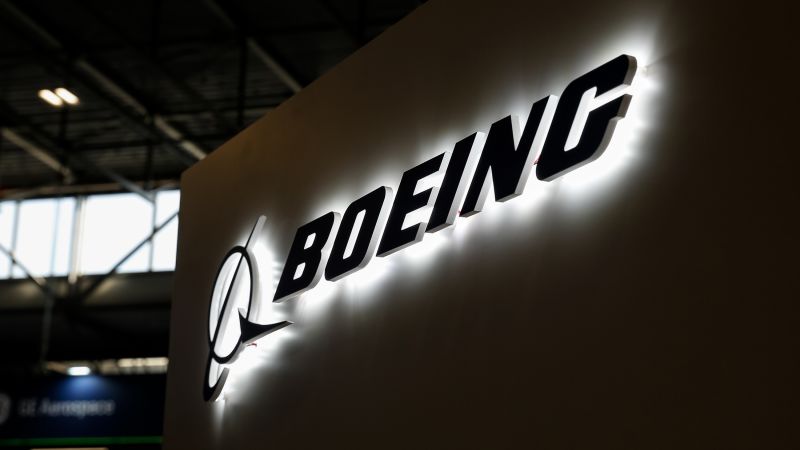On a significant day for the aviation industry, the United States Department of Justice (DOJ) announced on Friday a tentative agreement with Boeing that could potentially shield the renowned aircraft manufacturer from criminal prosecution related to the tragic crashes of the 737 Max. According to a court filing dated Friday, this development marks an important turning point in a protracted legal saga that has captured public attention and raised pressing questions about airline safety.
The agreement, often referred to as a non-prosecution agreement, follows a series of intense negotiations and substantial public discourse concerning Boeing’s practices leading up to the catastrophic events. While the particulars of the deal were initially leaked to the media last week, the court filing has now made it formal, although a judge will still need to give his or her approval before the deal can be implemented and the case officially closed.
Under the terms of the proposed settlement, Boeing is set to pay over $1.1 billion as part of a multifaceted response to the issues raised by the crashes, which claimed a tragic number of lives. This financial penalty includes not just fines but also commitments from Boeing to enhance their safety regulations and compliance programs. Additionally, the agreement stipulates payments to families affected by the crashes, seeking to provide some measure of restitution amidst ongoing grief and loss.
The DOJ articulated their perspective on the agreement in a court filing, stating, “The Agreement guarantees further accountability and substantial benefits from Boeing immediately, while avoiding the uncertainty and litigation risk presented by proceeding to trial.” This statement reflects a broader sentiment within the department regarding the need for accountability and proactive measures while mitigating the risks associated with prolonged legal battles.
If sanctioned by the court, this agreement holds the potential to conclude a longstanding and tumultuous case surrounding Boeing. Initially, the company was confronted with fraud allegations related to their purported efforts to mislead the Federal Aviation Administration (FAA) during the certification process for the 737 Max model. This initial scrutiny eventually evolved, leading to much graver concerns following the two disastrous crashes involving the aircraft.
In a prior settlement, the DOJ and Boeing had entered a deferred prosecution agreement, which could have ultimately kept the company from facing criminal charges altogether. However, complications arose in January 2024 when a malfunction occurred—a door plug on a 737 Max operated by Alaska Air failed, which briefly reignited concerns regarding aircraft safety and allowed the DOJ to reconsider pursuing criminal charges against Boeing.
Although no individuals were harmed in the Alaska Air incident, it significantly impacted the legal landscape for Boeing, prompting further consideration of accountability. In July, Boeing initially agreed to plead guilty to the charges brought against it, but the judge presiding over the case rejected the guilty plea, citing concerns regarding the selection process of the independent monitor who would oversee Boeing’s compliance with safety standards.
Reactions to the proposed agreement have been mixed, particularly from the families of crash victims, some of whom have criticized the deal harshly. An attorney representing the victims’ families emphatically labeled the arrangement as “morally repugnant,” describing it as merely a “slap on the wrist” for a company whose decisions had dire consequences. Such sentiments underscore the deep emotional and ethical complexities surrounding the negotiations and regulatory oversight in the aviation sector.
The DOJ spokesperson emphasized that extensive consultations had been held with the crash victims’ families, capturing a spectrum of opinions regarding the proposed resolution—ranging from approval to outright dissent. In response to criticisms, the spokesperson affirmed, “Nothing will diminish the victims’ losses, but this resolution holds Boeing financially accountable, provides finality and compensation for the families, and makes an impact for the safety of future air travelers.” As the situation continues to develop, the aviation industry and the public will remain watchful regarding the court’s ultimate decision and Boeing’s future trajectory in ensuring passenger safety.



